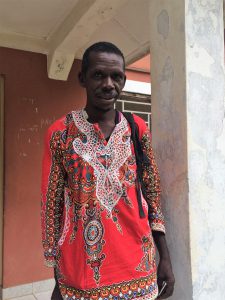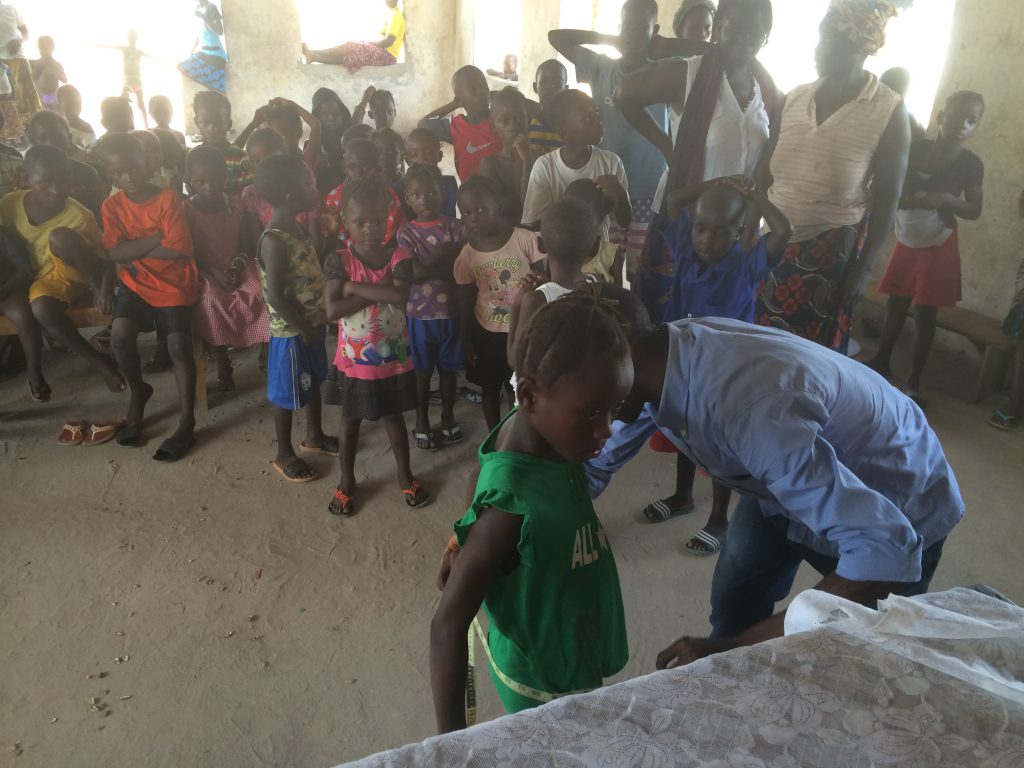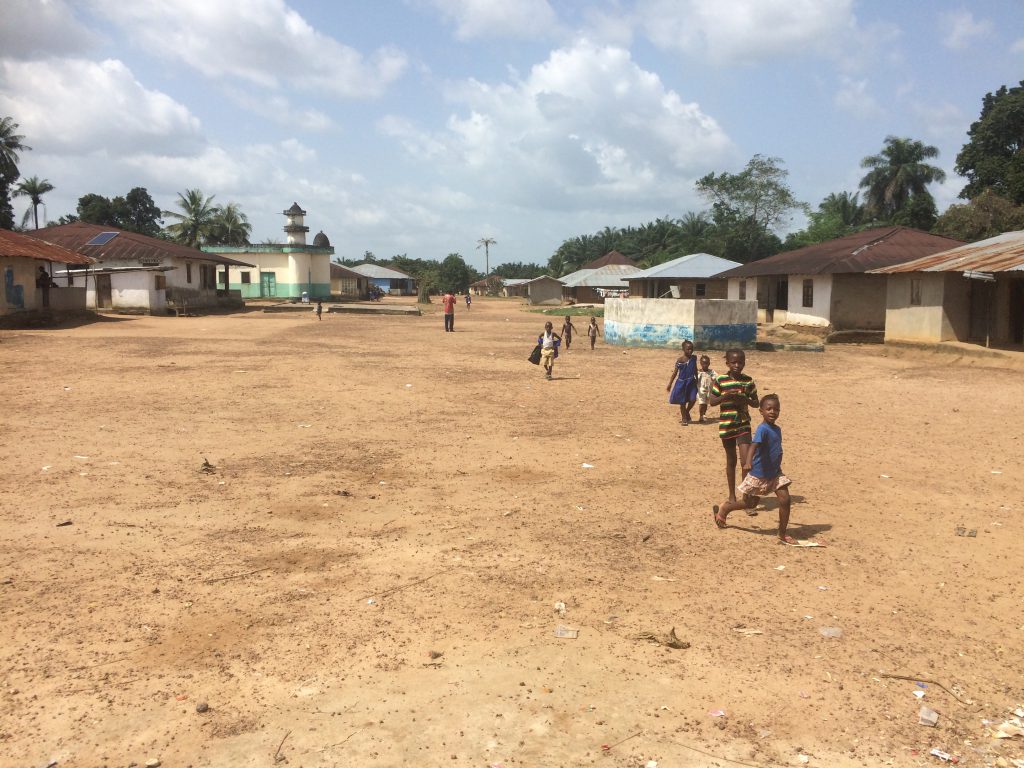Pate bana Marank, a rural village in northern Sierra Leone, became one of the most heavily affected villages during the Ebola outbreak, losing 11% of its population. 119 people died; 99 adults, 10 children under the age of 5 and 10 children between the ages of 6 and 15.
Sierra Leone is amongst the poorest countries in the world, with 60% of the population living below the poverty line on less than $1.25 per day. The Ebola outbreak reversed many economic gains achieved after the devastating civil war which ended in 2002, as well as its severe impact on the education system.
In October 2016, the Swiss-Sierra Leone Development Foundation opened the Magbenteh Community Boarding School for children affected by Ebola and those from the most deprived surrounding communities. 61 of our 200 enrolled students come from Pate bana Marank, relieving their guardians financially and providing a new opportunity for education.

John Bangura, the Community Health Monitor for Pate bana Marank both before and during the epidemic, describes the severe toll the epidemic had on the village: “In June 2014 we received our first Ebola case, a young woman called Assanatu. As in most villages, as part of a dignified burial, the corpse is washed by family members and neighbours. Unaware that Assanatu had died of Ebola, 48 members of the Pate bana community proceeded to develop symptoms of the virus.
I went to the Primary Healthcare Unit to ask for desperately needed help and advice. The medical team at our local clinic, which had consisted of 4 Community Health nurses, were all affected by the epidemic, I was the only one left who could do something for the sick people. No one knew what was happening, the word ‘Ebola’ was still understood as a myth.
The entire village was quarantined in August 2014 for 4 months and 10 days. The military secured the area to ensure no one entered or left without permission. I was only able to purchase rehydration salts and paracetamol on when I travelled to Makeni for emergency meetings. After a few weeks, as the number of cases increased, I managed to gain the attention of several NGO’s who provided us with food relief.
For the duration of the quarantine period, to ensure my own family wasn’t infected, I lived apart from my wife and 4 children. I used a raincoat, rainboots, a mask and gloves for protection. At the death of every individual, I was the first person to identify the corpse.
It was a very difficult time and one that has left a deep scar on our community, especially the youngest members.
Our village school was closed for 18 months to prevent further spread of infection. With 260 children and only 2 classrooms, when the Swiss-Sierra Leone Development Foundation offered to assist us, we couldn’t be happier. Most of the Ebola orphans are looked after by guardians who depend on agriculture for their livelihoods and the poverty is too much for many to handle. The Magbenteh Community Boarding School came as an enormous blessing for both the children and the community.
The school has given the children hope of a brighter future. The biggest and most obvious change in the children is their confidence and sense of self-worth. They can now speak basic English and have a new-found happiness to learn.”


